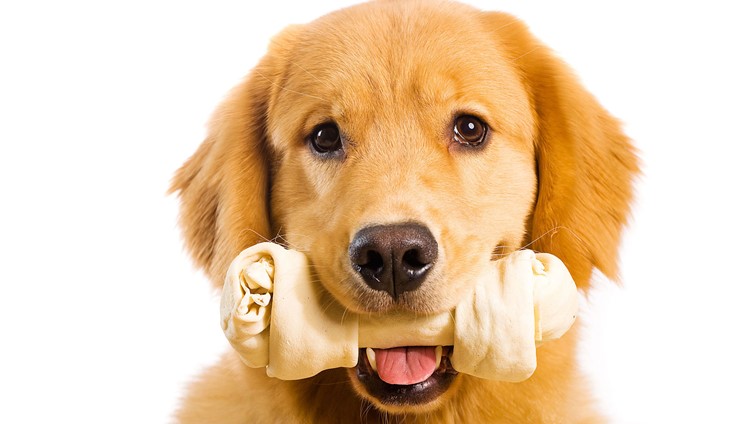The World Health Organization has now declared the novel coronavirus (named COVID-19) a global pandemic as it is quickly spreading throughout the world.
Last month a dog in Hong Kong tested weakly positive, leaving us all wondering if dogs can also become infected or transmit this new virus?
It is understandable that people are now not only worried about their own health but that of their pets too.
In this guide we will take a detailed look at the coronavirus, and what it means for you and your dog. We will also take a look at the latest animal-related advice and guidelines, and answer some common pet questions associated with the coronavirus outbreak.
Coronaviruses aren’t anything new, this large family of viruses is known to cause a variety of illnesses in humans and some animals.
There are many different types of coronavirus.
In humans, they usually cause respiratory tract infections ranging from the common cold to more severe respiratory diseases.
The most recently discovered coronavirus has been named COVID-19. The outbreak of this disease started in China in December 2019 and has now spread quickly throughout the world.
Common signs of infection in humans include a fever, cough, and shortness of breath. However, the virus can cause more severe signs including pneumonia, severe respiratory disease, kidney failure, and even death.
COVID-19 spreads when an infected person coughs, sneezes or exhales. Tiny droplets from the infected person’s mouth and nose land on surrounding objects and surfaces.
Other people can get infected with COVID-19 if they breathe in these droplets or touch these objects or surfaces and then touch their face (mouth, eyes or nose).
Dogs have their own canine corona virus disease which is known as CCoV.
However, the canine corona virus is very different from the coronavirus COVID-19. The canine corona virus attacks the dog’s intestinal system, while COVID-19 attacks the respiratory system in humans.
Currently, it is thought that COVID-19 is a type of corona virus that only infects humans.
Common clinical signs of canine coronavirus disease (CCoV)include:
Canine coronavirus (CCoV) is highly infectious, and young puppies are at a higher risk of infection.
There are dog vaccines available against canine coronavirus disease (CCoV), which helps prevent coronavirus intestinal infection.
However, this vaccine is not part of the routine vaccination protocol. It would only be recommended if your pup was deemed a high risk of getting infected with the canine coronavirus.
This vaccine only works against the CCoV type of coronavirus and is not effective against the human coronavirus COVID-19 infection. There are no vaccines currently available against coronavirus COVID-19.
Did a Dog Test Positive for COVID-19?
A dog in Hong Kong, whose owner was infected with the virus, did test “weakly positive” for coronavirus COVID-19 infection. The dog wasn’t showing any signs of illness but was placed in quarantine as a precaution.
It is still not known if the dog just had viral particles in its nose and mouth from close contact with its owner, or if it really was infected with COVID-19. The accredited laboratories in Hong Kong are still awaiting further test results to make a final decision.
Can Pets Become Infected with COVID-19?
The good news is that there have not been any other reported cases of pets infected with COVID-19, and there is absolutely no evidence that pets can be a source of infection for humans.
On the 13th March, Idexx Laboratories announced that it had tested thousands of pet dogs and cats for coronavirus (COVID-19), and all of the results were negative. So, it is looking highly unlikely that pets can become infected with this viral infection.
If You Are Sick with COVID-19 Should You Avoid Contact with Animals?
The Centers for Disease Control and Prevention (CDC) in the United States has issued the following guidelines if you are sick with COVID-19:
- Restrict contact with pets and other animals
- If possible, have another member of your household care for your animals
- Avoid close contact with your pet, including petting, snuggling, being kissed or licked
- Wash your hands before and after you interact with pets and wear a facemask
Currently, there isn’t much evidence to show that pets can spread COVID-19, or be a source of infection for people.
However, as this is a new virus, tests are still being carried out to check if pets can become infected or spread COVID-19. Therefore, that is why people who are sick are being asked to avoid contact with pets or other animals.
What to Do if Your Dog Has Been in Contact with a Person with COVID-19, And Develops Signs of Illness?
There are no known cases of dogs that have developed signs of illness after being in contact with people infected with the coronavirus.
If your dog has been in contact with a person with COVID-19 and begins showing signs of illness, then you should talk to a public health official. They will probably advise you to take your dog to your veterinary clinic.
However, a public health veterinarian or official may advise your dog to be quarantined or arrange for your dog to be tested for the virus.
If you need to take your dog to the veterinarian, you should call your vet clinic in advance, and let them know your dog has been in contact with a sick person with COVID-19.
That gives the clinic time to prepare staff, necessary protective supplies and equipment, and prepare an isolation area if needed.
Is There a Test to Check if a Dog Has COVID-19?
Idexx Laboratories have revealed that they have a test available to test pets for coronavirus COVID-19 infection.
However, it is not recommended at this time that pets be routinely tested for COVID-19, as it is thought to be only transmitted from person to person.
Dogs with signs of respiratory illness should be checked by a veterinarian and tested for more common canine pathogens first.
Any Special Measures for Pets in HouseholdsWhere There are COVID-19 Cases?
People that have tested positive for COVID-19 or those that are in isolation suspected to have the virus, should avoid close contact with pets in their household. This includes petting, hugging or being kissed or licked by the pet(s).
Ideally, another person should help care for their pets while they recover.
If the sick person or person in isolation needs to care for their own pets, then they should wear a facemask and wash their hands before and after interaction with their pets.
How Can You Help Prevent Infection?
There are some ways you can try to stay safe and prevent getting infected with coronavirus COVID-19. The WHO recommends:
- Wash your hands frequently
- Maintain at least 1 meter (3 feet) distance between yourself and anyone who is coughing or sneezing
- Avoid touching your eyes, nose, and mouth (to prevent picking up the virus)
- Practice respiratory hygiene (cover your nose and mouth when you cough or sneeze with a tissue or bent elbow)
- If you have fever, cough and difficulty breathing, call your medical provider
It is important to follow the directions of your local health authority and seek medical attention if necessary.

With the number of cases of COVID-19 set to continue to rise in many parts of the world then it is best to be prepared and make arrangements for your pet(s) if you were to become ill. Here are some good tips:
1. Choose an Emergency Carer
Choose someone who could help you out if needed, if you are suddenly unable to care for your pet. This might be a person in your family, a friend, or your regular dog boarding kennels. Phone and ask them directly in advance.
2. Make a Folder with All Your Dog’s Info
If your pet suddenly needs to be cared for by your emergency carer, then make it easy for them by having all your dog’s information ready. Make a list of his food, a general timetable, his likes and dislikes, quirky habits and behaviors.
Also, write down his current medical conditions, any medications he takes and contact information for the veterinarian (day and night).
3. Stock Up on Pet Supplies
If your dog takes any medication, then call well in advance (at least one week before you run out) to order it with your veterinarian- it may take longer than normal to get some drugs and the prescription prepared.
You could make up an emergency kit and include a leash, your dog’s information, a 30-day supply of your pets’ medications, and at least two weeks’ worth of food.
Conclusion
Currently, there is only one case of possible coronavirus COVID-19 infection in a dog and no evidence that pets can transmit or spread the virus.
That’s good news for our pups, who are likely to be totally unaffected by this new viral outbreak.
However, with human cases likely to increase dramatically in the next few weeks, it is a good idea to make an emergency kit and choose an emergency carer for your pooch. Hopefully, you won’t need to call on them for help, but it is good to be prepared.






















